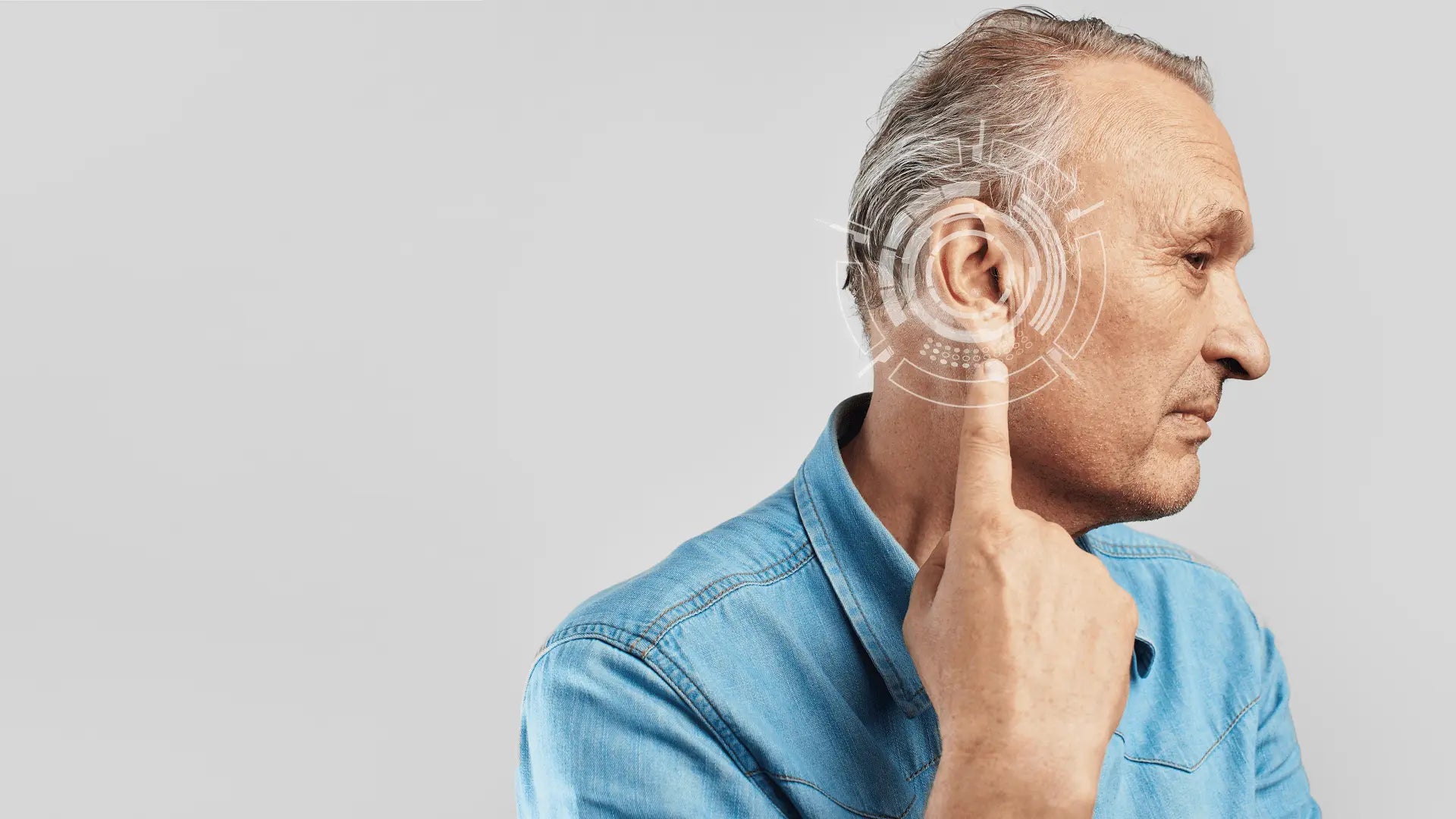The process of navigating the world of hearing aids frequently results in the emergence of a myriad of concerns, one of the most popular of which is, "Will my hearing aids require frequent adjustments?" This in-depth guide will offer you with the necessary information to answer that question and remove some of the mystery around the experience of using hearing aids.
Gaining an Understanding of the Adjustments for Your Hearing Aid
Adjustments to hearing aids, which are also known as fittings or programming, entail making modifications to the settings on the user's hearing aid in order to better accommodate the user's individual hearing requirements. These modifications are necessary in order to make certain that your hearing aids are capable of providing the most beneficial amount of amplification over a wide range of frequencies.
Hearing aids of today are highly advanced pieces of technology that may be adapted to meet the specifics of each individual user's hearing profile. When you initially get your hearing aids, an audiologist or another hearing healthcare practitioner will program them according to the findings of the most recent hearing test that you've had, the requirements of your lifestyle, and your own individual preferences.
Adjustments should be Made to Hearing Aids on How Often
To answer your question, how frequently will your hearing aids require you to make these adjustments? The response can be quite variable based on a variety of conditions, including the following:
1. The Initial Adjustment Period You can anticipate going through an adjustment period when you initially obtain your hearing aids. This is the stage in which you become acclimated to the new noises, and at the same time, your ears become adapted to the device. During this period, you may find that you need to make many tweaks in order to achieve the best possible results. It is possible that you may need to make many visits to your audiologist within the first few weeks or months before you become accustomed to using your hearing aids.
2. Alterations in Hearing Our hearing abilities may shift throughout the course of our lifetimes as a result of age, modifications to our health, or the advancement of hearing loss. Hearing exams on a regular basis will assist in monitoring these changes. If there has been a discernible shift in your hearing, your hearing aids will need to be changed so that they are compatible with your new hearing thresholds.
3. Normal Wear and Tear Hearing aids, like any other electronic equipment, are subject to normal wear and tear over time. By doing routine maintenance, you can make sure that they are operating as efficiently as possible, and by making periodic modifications, you can guarantee that their performance is maintained.
4. Problems with Feedback: If you begin to experience feedback (sounds like whistling or buzzing) from your hearing aids, this might be an indication that they require an adjustment.
After the first time of fitting and adjustment, the majority of users discover that they only require adjustments once or twice a year. This is the case unless there is a dramatic change in their hearing or they begin experiencing complications with their hearing aids.
Adjustments Should be Made to the Hearing Aid
Typically, an audiologist or another specialist in hearing healthcare will make any necessary changes to a patient's hearing aid. Your comments and the professional's assessment of your current hearing needs will inform the adjustments that the audiologist makes to the settings on your hearing aids using specialist software.
However, as a result of advances in technology, some hearing aids now provide their wearers with the option to make modest modifications to their device from home by means of an app on their smartphone. These do-it-yourself tweaks can involve varying the level, making modifications to account for a variety of listening situations, and even shifting the proportion of treble to bass or vice versa. However, extensive changes should never be attempted by anybody other than a trained expert.
Conclusion
In conclusion, although hearing aids may require adjustments, the frequency of these changes can vary greatly depending on your personal hearing needs, lifestyle, and the hearing aids that you are using in conjunction with each other. The majority of people discover that their hearing aids do not require regular adjustments after they have gone through the initial phase of adjustment.
Keep in mind that it is essential to schedule routine checkups with your hearing healthcare practitioner in order to maintain your hearing health and ensure that your hearing aids are operating at their full potential. If you feel as though your hearing aids require some changes, don't be afraid to get in touch with the specialists who are there to assist you in getting the most out of your hearing aids; they are there to help you get the most out of your hearing aids.
Please keep in mind that the purpose of this article is to provide information and does not in any way replace the need for professional counsel. Always be sure to discuss your individual requirements with a qualified medical professional or hearing aid specialist.
Gaining an Understanding of the Adjustments for Your Hearing Aid
Adjustments to hearing aids, which are also known as fittings or programming, entail making modifications to the settings on the user's hearing aid in order to better accommodate the user's individual hearing requirements. These modifications are necessary in order to make certain that your hearing aids are capable of providing the most beneficial amount of amplification over a wide range of frequencies.
Hearing aids of today are highly advanced pieces of technology that may be adapted to meet the specifics of each individual user's hearing profile. When you initially get your hearing aids, an audiologist or another hearing healthcare practitioner will program them according to the findings of the most recent hearing test that you've had, the requirements of your lifestyle, and your own individual preferences.
Adjustments should be Made to Hearing Aids on How Often
To answer your question, how frequently will your hearing aids require you to make these adjustments? The response can be quite variable based on a variety of conditions, including the following:
1. The Initial Adjustment Period You can anticipate going through an adjustment period when you initially obtain your hearing aids. This is the stage in which you become acclimated to the new noises, and at the same time, your ears become adapted to the device. During this period, you may find that you need to make many tweaks in order to achieve the best possible results. It is possible that you may need to make many visits to your audiologist within the first few weeks or months before you become accustomed to using your hearing aids.
2. Alterations in Hearing Our hearing abilities may shift throughout the course of our lifetimes as a result of age, modifications to our health, or the advancement of hearing loss. Hearing exams on a regular basis will assist in monitoring these changes. If there has been a discernible shift in your hearing, your hearing aids will need to be changed so that they are compatible with your new hearing thresholds.
3. Normal Wear and Tear Hearing aids, like any other electronic equipment, are subject to normal wear and tear over time. By doing routine maintenance, you can make sure that they are operating as efficiently as possible, and by making periodic modifications, you can guarantee that their performance is maintained.
4. Problems with Feedback: If you begin to experience feedback (sounds like whistling or buzzing) from your hearing aids, this might be an indication that they require an adjustment.
After the first time of fitting and adjustment, the majority of users discover that they only require adjustments once or twice a year. This is the case unless there is a dramatic change in their hearing or they begin experiencing complications with their hearing aids.
Adjustments Should be Made to the Hearing Aid
Typically, an audiologist or another specialist in hearing healthcare will make any necessary changes to a patient's hearing aid. Your comments and the professional's assessment of your current hearing needs will inform the adjustments that the audiologist makes to the settings on your hearing aids using specialist software.
However, as a result of advances in technology, some hearing aids now provide their wearers with the option to make modest modifications to their device from home by means of an app on their smartphone. These do-it-yourself tweaks can involve varying the level, making modifications to account for a variety of listening situations, and even shifting the proportion of treble to bass or vice versa. However, extensive changes should never be attempted by anybody other than a trained expert.
Conclusion
In conclusion, although hearing aids may require adjustments, the frequency of these changes can vary greatly depending on your personal hearing needs, lifestyle, and the hearing aids that you are using in conjunction with each other. The majority of people discover that their hearing aids do not require regular adjustments after they have gone through the initial phase of adjustment.
Keep in mind that it is essential to schedule routine checkups with your hearing healthcare practitioner in order to maintain your hearing health and ensure that your hearing aids are operating at their full potential. If you feel as though your hearing aids require some changes, don't be afraid to get in touch with the specialists who are there to assist you in getting the most out of your hearing aids; they are there to help you get the most out of your hearing aids.
Please keep in mind that the purpose of this article is to provide information and does not in any way replace the need for professional counsel. Always be sure to discuss your individual requirements with a qualified medical professional or hearing aid specialist.


